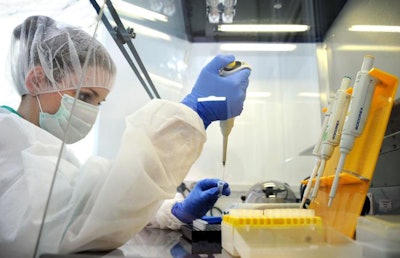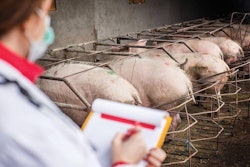
Professor who developed a COVID-19 rapid test will now turn attention to ASF
Another technology that became commonplace thanks to the onset of COVID-19 may now benefit the global fight against African swine fever (ASF): paper-based rapid test kits.
Mohit Verma, a professor of agricultural and biological engineering in Purdue University’s College of Agriculture, will lead a research team that recently received US$1 million from the National Animal Health Laboratory Network and the National Animal Disease Preparedness and Response Program to develop a rapid ASF test kit. Verma, according to Purdue University, previously helped develop a rapid home test kit for COVID-19.
As with COVID-19, Verma said, rapid diagnosis of ASF is critical to controlling the spread of the disease. Laboratory tests remain the gold standard for detecting ASF, but waiting for laboratory results can slow decisions about how to potentially control an outbreak.
“If you want faster decisions, you need tests that are rapid as well as portable,” Verma said. “You need to bring the lab to the farm rather than bringing the samples to the lab.”
Rapid, portable ASF tests are already available internationally, Verma said, but they aren’t as sensitive to the virus as laboratory techniques. Verma’s team plans to use a technology similar to the methods used in laboratories to improve test accuracy. But unlike a laboratory, the tests Verma envisions will take the form of paper-based kits that change color to indicate the presence of the virus. The product could be used on-farm, potentially reducing test wait times to as little as an hour.
The intent would be to distribute the tests in countries where ASF is already circulating, Verma said, but the tests could also be used to detect or control outbreaks should the virus emerge in the U.S. or other regions currently unaffected by the virus.
Verma estimated that the development of the test kits would take about two years, at which point the university would be ready to begin field tests of the product.


















